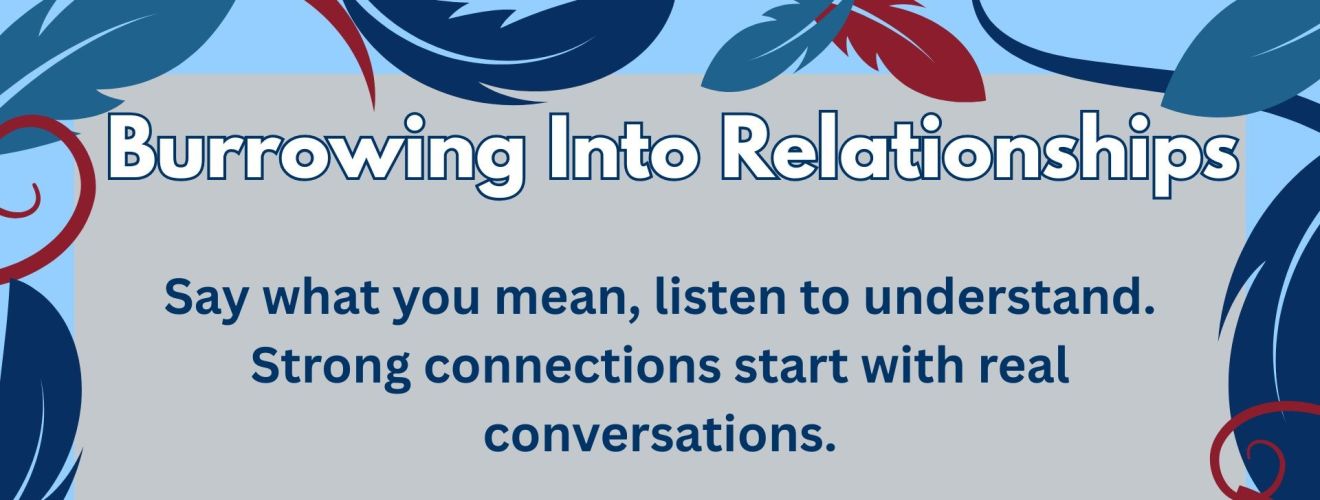Safe & Healthy Relationships
Find your 🦉 Owl Family!
Relationships come in many forms; friends, family, partners, and community. Gain understanding in what makes healthy relationship to enjoy a more fulfilling experience.

Healthy Relationship Resources
College life provides unique opportunities to meet new people and explore a variety of relationships. Regardless of the type of relationship, in healthy relationships you can be yourself, have fun together, respect each other, value each other’s differences, and communicate openly. Relationships with these characteristics can be very fulfilling and contribute to a positive experience while in college.
Unfortunately, not all relationships are healthy relationships. Signs of unhealthy relationships can include demeaning comments, blaming, jealousy or possessiveness, use of force, coercion or pressure, threats, intimidation, and violence. If you are concerned about a relationship, whether your own or someone else’s, Florida Atlantic University, has several resources to help students in these situations.
Unfortunately, not all relationships are healthy relationships. Signs of unhealthy relationships can include demeaning comments, blaming, jealousy or possessiveness, use of force, coercion or pressure, threats, intimidation, and violence. If you are concerned about a relationship, whether your own or someone else’s, Florida Atlantic University, has several resources to help students in these situations.
On- and Off-Campus Resources
- On-CampusVictim Services at FAUAvailable to all of FAU’s students, faculty, staff, and community members. Whether the incident occurred on or off campus, in the past, or recently, Victim Services is here to help.
- On-CampusReport a Concern
- On-CampusIt's on Us
- On-CampusDomestic Violence Awareness
- On-CampusAnnual Security Report
- Off-CampusCommunity Resources
Owls Make M.O.V.E.S.
 MutualEveryone is informed and aware of what is going to happen. Everyone is involved in the decision-making process; no single person makes all the decisions. Everyone involved wants this.
MutualEveryone is informed and aware of what is going to happen. Everyone is involved in the decision-making process; no single person makes all the decisions. Everyone involved wants this. OngoingConsent is continuous and can be reversed! Consent to one thing does not mean consent to another. Do not assume because someone consented in the past that they will in the future do the same thing.
OngoingConsent is continuous and can be reversed! Consent to one thing does not mean consent to another. Do not assume because someone consented in the past that they will in the future do the same thing. VoluntaryConsent is given of one’s own free will. Free from coercion. It is without force, pressure, intimidation and/or manipulation.
VoluntaryConsent is given of one’s own free will. Free from coercion. It is without force, pressure, intimidation and/or manipulation. ExpressedDo not assume! Body language does not mean consent is given. Consent is clear, enthusiastic, and explicit.
ExpressedDo not assume! Body language does not mean consent is given. Consent is clear, enthusiastic, and explicit. SafeClear, informed consent is essential and must be mutual. Alcohol and other drugs complicate this agreement. Ensure everyone has discussed and agreed upon safe sex practices, including barrier methods and/or STI testing.
SafeClear, informed consent is essential and must be mutual. Alcohol and other drugs complicate this agreement. Ensure everyone has discussed and agreed upon safe sex practices, including barrier methods and/or STI testing. Sexual HealthLearn more about making the right MOVES!
Sexual HealthLearn more about making the right MOVES!
Self-Assessment Resources
 WorkshopsBystander Intervention TrainingThis interactive discussion helps students recognize the ways in which we can have a positive impact by watching out for each other.
WorkshopsBystander Intervention TrainingThis interactive discussion helps students recognize the ways in which we can have a positive impact by watching out for each other. One LoveHost a Student-lead WorkshopOne Love Foundation is a national non-profit organization with the goal of ending relationship abuse.
One LoveHost a Student-lead WorkshopOne Love Foundation is a national non-profit organization with the goal of ending relationship abuse. GroupSexual Assault Resistance RetreatsThese small group programs help students recognize risk cues for sexual assault, learn about healthy relationships, and boundary setting.
GroupSexual Assault Resistance RetreatsThese small group programs help students recognize risk cues for sexual assault, learn about healthy relationships, and boundary setting.
Students in Distress
This guide informs faculty, staff and students how to recognize signs of distress, provides tips on how to respond to distressed students’ observations and their concerns, and provides references which enable faculty, staff and students to determine who to contact.
Mental Health Self-help
Welltrack Boost
You have free on-demand access to Welltrack Boost. Digital self-help tools you can use on your own device and schedule. Take control of your mental health and happiness.
Check out the Thriving with Healthy Connections series.
Check out the Thriving with Healthy Connections series.
LinkedIn Learning
Check out these pre-selected modules or click "All Modules" to explore!



